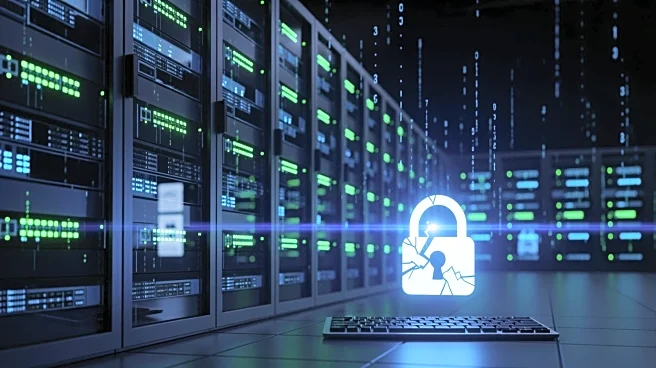What's Happening?
Protei, a Russian telecom company specializing in surveillance and censorship technology, was hacked, resulting in the theft of 182 gigabytes of data and the defacement of its website. Protei develops
telecommunications systems for phone and internet providers across multiple countries, including surveillance equipment and web-filtering products. The breach involved the theft of emails dating back years, and the data was provided to DDoSecrets, a nonprofit transparency collective. The identity and motivations of the hacker remain unknown, but the defaced website referenced Protei's sales of deep packet inspection systems used for lawful intercept systems like SORM.
Why It's Important?
The hacking of Protei highlights the vulnerabilities of companies involved in surveillance and censorship technology. The breach raises concerns about the security of sensitive data and the potential misuse of surveillance systems. As governments and organizations increasingly rely on such technology, the risk of unauthorized access and data breaches becomes more significant. The incident may prompt discussions on the ethical implications of surveillance technology and the need for stronger cybersecurity measures to protect sensitive information.
What's Next?
Protei may face increased scrutiny from regulatory bodies and customers, potentially leading to changes in its security protocols and business practices. The breach may prompt other companies in the surveillance industry to reassess their cybersecurity measures and invest in stronger protections. The incident may also lead to increased public awareness of the risks associated with surveillance technology and drive demand for more secure and privacy-focused solutions.
Beyond the Headlines
The ethical implications of surveillance technology raise questions about privacy rights and the responsibilities of companies in securing sensitive data. As the use of such technology becomes more widespread, the balance between security and privacy will be a critical consideration for businesses and governments. The long-term impact of such incidents may influence public perceptions of surveillance technology and drive demand for more transparent and accountable practices.









